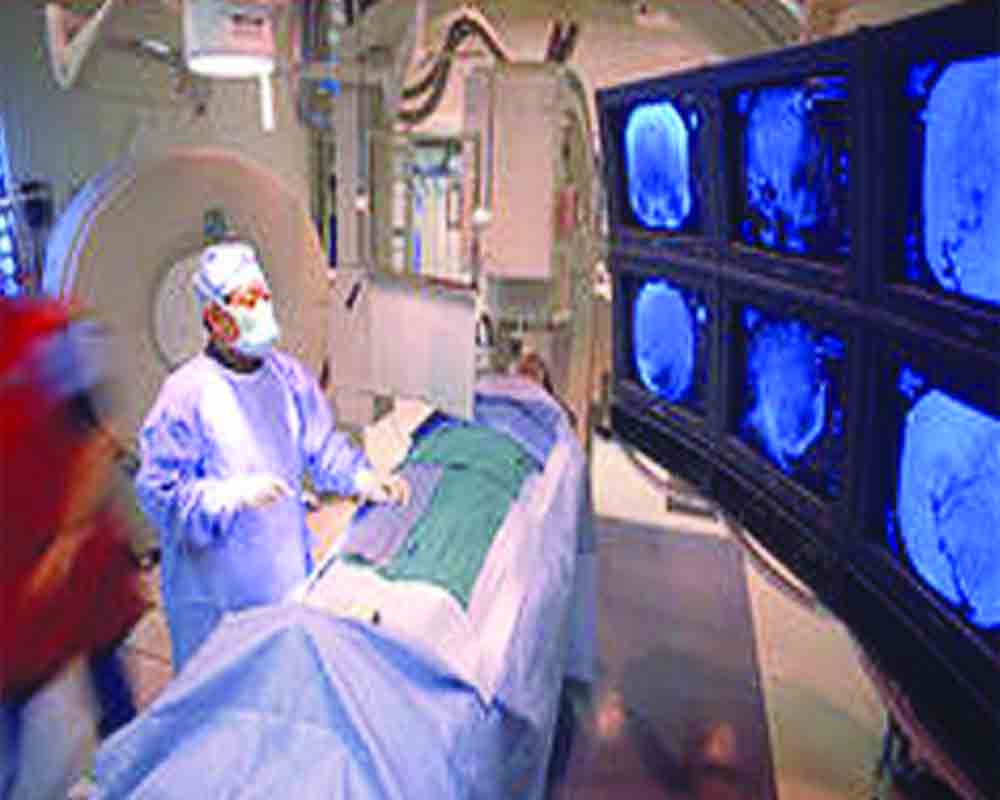The Covid-19 survivors in particular have mental disorders on account of social isolation, anxiety, fear and emotional distress
India has a huge burden of neurological diseases along with mental health disorders and substance abuse. Neurological diseases alone constitute nearly 10 percent of total diseases in India along with an additional 10.6 percent prevalence of psychiatric disorders, according to the National Mental Health Survey, 2016. With more than 20 crore people affected by these diseases and in need to medical help, it is a serious challenge to India’s public health system.
These diseases are on the rise, ironically, because of the increased longevity of the population withmany people now living beyond the seventies and eighties. Strokes, headache disorders, epilepsy, dementia, and Parkinson’s disease are the leading contributors to neurological disorders.
A recent Lancet global study said the disability resulting from neurological diseases has doubled from four per cent in 1990 to 8·2 per cent in 2019 and the proportional contribution of mental disorders to the total disease burden in India has also almost doubled since 1990. Indian ethnic factors are notable as most of us are prone to life-style related risk factors like diabetes, hypertension, lack of physical exercise, obesity, smoking, and air pollution. Many neurological conditions have a progressive course with limited therapeutic options available and require long-term treatment as well as care.
More than a third of all suicides globally are committed in India. The suicidal rates rank first among all mortality causes in young women in most states. This causes enormous financial losses as well as societal slurs. The WHO estimated in 2011 that the economic loss due to mental health disorders alone will be in the realm of $1.03 trillion between 2012 to 2030.We also have the peculiar social issue of stigma associated with mental health disorders in our country.
The government has taken steps to make things better for the patients. The Mental Health Care Act, 2017 empowers patients to make choices regarding treatment or nominate someone to take decisions about the course of treatment. It also decriminalises the attempt to die by suicide, thereby reducing further stress on the victim. The Act provides the right to treatment for patients with mental health disorders.
Despite an exponential rise in neurological diseases, the neurology and psychiatric workforce has not grown proportionally. India has inadequate specialist manpower with fewer than 2500 neurologists, 1800 neurosurgeons, 200 palliative care physicians, and around 9000 psychiatrists, as per the Indian Psychiatric Society register.
The majority of the specialists are in urban hospitals and private setups. Very few of these services are available in rural areas. Most of these patients require long-term rehabilitation but neurorehabilitation is still in its infancy in India and practically non-existent in many parts of the country. Neuro-palliative care is still unheard of and leaves many patients with a poor quality of life. Hardly one or two per cent of the patients have access to palliative care or pain management.Hence, there is a dire need to strengthen the neurology and psychiatric workforce and the availability of affordable and accessible management of neurological disorders. Also, stigma and lack of awareness are key issues that need to be addressed not only by state but also by civil society.
World Brain Day is observed on July 22 with the objective of raising awareness about brain diseases and neurological disorders. The theme for this year is Multiple Sclerosis which affects young women resulting in profound physical impairment as well as mental health disabilities. World Brain Day 2021 is alsoimportant in view of the fact that people in general, and Covid-19 survivors in particular, are suffering mental disorders on account of social isolation, anxiety, fear, and emotional distress. It has become widespread after the second wave of the pandemic.
The number of patients reporting mood swings, depression, stress, anxiety, severe post-traumatic stress disorders, or depressive symptoms is increasing and needs counseling and support. We need to plan for the long-term care of these millions of Covid survivors suffering from neurological issues. The time has come to recognize the parallel epidemic of neurological and mental health disorders and plan strategies for an effective public health response to reduce this burden of brain diseases and augment infrastructure and the workforce in addition to creating public awareness and mitigating social stigma attached to these patients.
(The writer is Head of Neurology Department, Lady Hardinge Medical College and SSK Hospital, New Delhi. The views expressed are personal.)


























